All Stories
-
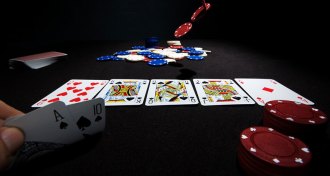 Computing
ComputingNew computer algorithm plays poker almost perfectly
An algorithm optimized to play heads-up limit Texas Hold’em poker will never lose in the long run against any opponent.
By Andrew Grant -
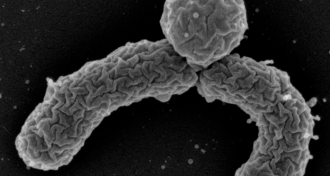 Health & Medicine
Health & MedicineNew antibiotic candidate shows promise
Tests in lab dishes and mice suggest an experimental compound called teixobactin can kill staph, TB microbes and other bacteria.
By Nathan Seppa -
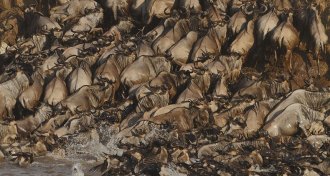 Animals
AnimalsHow many wildebeest? Ask a satellite
High-resolution satellite imagery could offer a reliable way to count large mammals in open habitats from space.
-
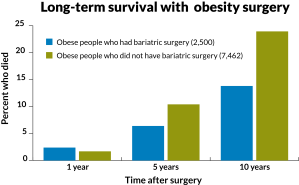 Health & Medicine
Health & MedicineWeight-loss surgery linked to better survival
Obese middle-aged and older people fare better if they have had bariatric surgery, a long-term study of veterans finds.
By Nathan Seppa -
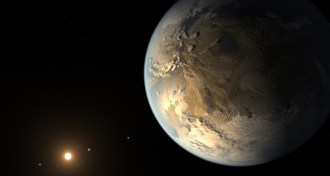 Astronomy
AstronomyKepler telescope discovers another 554 possible planets
Extra year of Kepler telescope data adds 554 possible planets and eight confirmed ones that might be able to host life.
-
 Neuroscience
NeurosciencePET scans hint at brain’s reorganization after injury
Imaging monkeys’ brains after strokelike injury is giving scientists clues to how neurons reorganize themselves so the animals can move again.
-
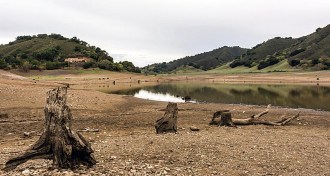 Climate
ClimateStalled global warming linked to North American drought
Strong Pacific Ocean winds blamed for the global warming hiatus also boosted the odds of severe drought in the southwestern United States.
-
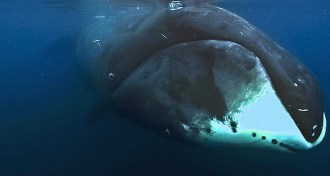 Animals
AnimalsBowhead whales may unlock the secrets to a long, healthy life
Analyzing the genome of the bowhead whale may help scientists understand how the animals live for more than 200 years.
-
 Health & Medicine
Health & MedicineHPV vaccination not linked to multiple sclerosis
Getting vaccinated against human papillomavirus, or HPV, is not associated with developing multiple sclerosis or similar diseases, a new study shows.
-
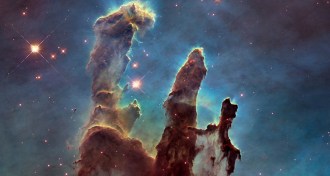 Astronomy
AstronomyHubble telescope snaps new images of iconic stellar nursery
Hubble's new view of the Pillars of Creation, a star-forming region in the Milky Way, hints at how the nebula has changed over the last 20 years.
-
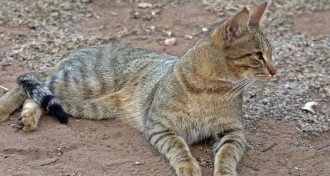 Animals
AnimalsLittle African cats need big parks
Protecting African wildcats requires large protected areas free of feral cats to avoid the risk of the wild species disappearing through hybridization.
-
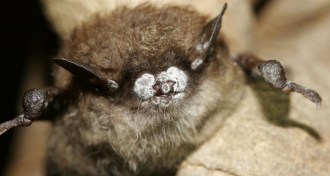 Animals
AnimalsWhite-nose syndrome messes with bats’ metabolisms
Bats with the deadly white-nose syndrome use twice as much fat for energy as their healthy companions in winter months.